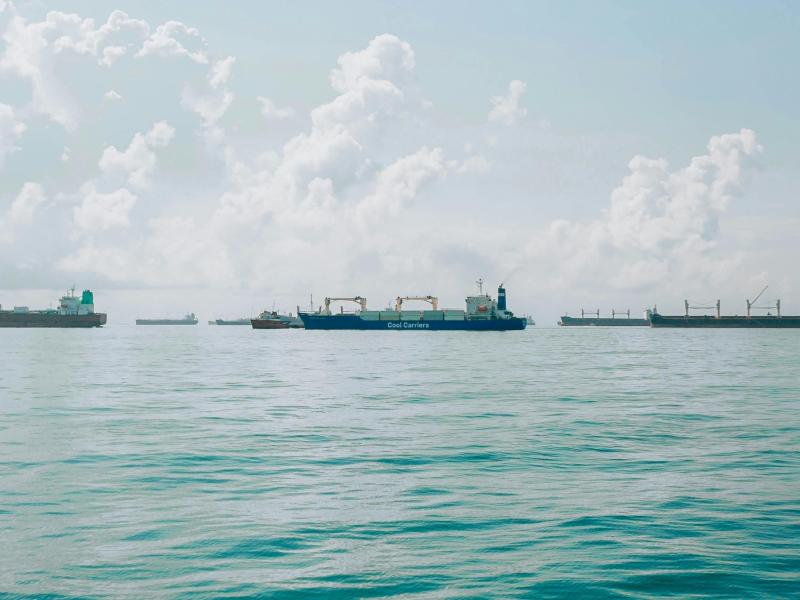Trade unions and animal activists have reacted with horror as the footage shows sheep carcasses disintegrating in the hands of crew, who are working in gumboots and no protective gear in a bog of dead sheep, mixed with animal faeces and urine.
The bodies of the sheep, often gelatinous in substance, are shifted onto tarpaulins and dumped into the sea. The sheep appear to have been cooked alive.
The video was filmed by a whistleblower who worked onboard the Awassi Express in 2017 and used an iPhone to capture the horrific scenes over five separate voyages between Australia and the Middle East.
The whistleblower took the footage to Animals Australia, who then provided it to the International Transport Workers’ Federation (ITF).
ITF president and Maritime Union of Australia national secretary Paddy Crumlin condemned the barbaric practices in the live sheep trade exposed recently by 60 Minutes and again today by Fairfax media and said the industry is currently failing community expectations.
"Sadly, the utterly disgraceful treatment of animals onboard live export vessels is often mirrored by the equally dismal treatment of seafarers, and this new footage is a terrifying reminder of what life can be like at sea when workers have no rights. It’s a living hell,” Mr Crumlin said.
“It is shocking that any seafarer could be forced to work in the in furnace-like conditions onboard the Awassi Express. These exploited seafarers appear to have insufficient equipment or training to handle animals at sea and little control to improve conditions.
"The ITF has serious concerns about the long-term mental and physical health of the crew members working under these conditions – ankle deep in sheep effluent and removing sheep carcasses in advanced states of decomposition with only gumboots and rubber gloves as protective equipment.
“Emanuel Exports is an Australian-based company and it is their responsibility to ensure that the ships they hire have safeguards that protect the welfare of seafarers and animals.
"The Federal Government needs to temporarily ban the live export of sheep until such time as they convene a meeting with farmers, livestock industry, logistics companies, unions and animal welfare groups to determine if there is a solution that involves humane treatment and transport of animals involved.
"The first job of this group is to determine if the industry has short or long term future. I note the Deputy Prime Minister said on May 4 that animal welfare standards need to be front and centre of the live animal trade and that we are the only country in the world that has a scheme in place where animal welfare is looked at from the time the animals leave the farm gate to the time they arrive at their destination.
"I don’t think the Australian community could see today’s footage and say that we are meeting Australia’s obligations for the welfare of animals, let alone the seafarers onboard the same vessel.
"Whether or not the live trade continues, we need to have workers with rights onboard live export vessels. Seafarers on board these vessels often have no rights, are paid slave wages, and are treated inhumanely.
"The MUA and ITF believe that when carrying Australian animals you should have Australian seafarers with appropriate training on board to ensure the best possible standards."
Dr Lynn Simpson, a vet who has been on 57 voyages, said the almost liquid condition of the carcasses and the state of their limbs popping off at the slightest handling showed the animals had effectively been cooked alive.
"These animals have effectively been cooked alive. This isn’t the first time this has happened; it is simply the first time it has been caught on camera. The extreme heat these poor animals have endured means their bodies fall apart at the lightest pressure in the same way slowcooked lamb does when served and eaten.
"Crew and vets that carry sheep in the Middle East in summer expect to see the death of some animals but not on this scale,” Dr Simpson said.
"Only six per cent of Australian sheep that are exported are exported live. The remaining are processed by Australian processors on shore and are exported chilled or frozen. As such, the live export sector is only a small part of the overall sheep export industry.
"Every country that we currently export to already has arrangements in place to accept chilled or frozen Australian meat and this significantly eases the transition away from live exports for farmers."
ENDS
For more information and comment including Paddy Crumlin and Dr Lynn Simpson please contact: Darrin Barnett +61 428 119 703
For background contact: Luke Menzies, ITF +61 433 889 844
menzies_luke@itf.org.uk



